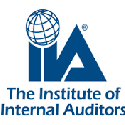Best way to implement Corporate Governance at a Small Business

Good governance is important for long-term stability, sustainable growth and efficiency of operations of the organization. In the absence of, or with poor governance, an organization is destined to experience frauds, unexpected highs and lows in business volume and profitability and eventually business failure. This primary objective of sustainable growth cannot be achieved unless the accountability and performance measurement tools are not maintained. Corporate governance is one of such tool which provides guideline to organizations. Corporate governance increases the confidence of shareholder and has positive impact on value of organization. Good corporate governance secures the corporate image and helps in achieving the competitive edge in market. It improves management of capital, risk and long term objectives.
In context of small businesses, which usually do not have extended level of strategic apex; corporate governance provides a guide and acts as a safeguard against existential threats to the entity. This is achieved by managing risk by balancing power through division of responsibilities, maintaining internal and external processes of control and maintaining corporate relations with financial institutions. Small business need to address these questions as soon as possible but it does not happen as an event; it is always a process. It starts by addressing the most material risks first. For example, a system of internal control implemented by professionals after thorough study of the operations serve as a safeguard against risk of fraud and errors in financial information. Similarly, a rigorous set of reporting structure designed by professionals after collecting the information needs of all the stakeholders serves as efficient business planning and monitoring tool.
Board of directors are accountable towards ordinary shareholders of the company. However in case of small business, where shareholder or their nominee assumes the role of a director, usually do not feel accountable towards other stakeholders. Their powers are not restricted towards inspection of books of accounts only. They influence the daily running of operations of company and managing the staff to whom this responsibility is delegated. Financial information presented by management to directors is used by them for analyzing the current financial performance of company and future prospects are based on that presented information. When managing director is also the shareholder of company, as in case of small businesses; the potential conflict of interest may arise between the management staff and the shareholder. Therefore, it is necessary that small business shareholders shall not control the way operations are carried out in organization in order to ensure transparency and accuracy of information presented to them for decision making.
Beside this, management staff in small businesses is the only source which can ensure compliance with laws and regulations required for achieving purpose of corporate governance. Their role shall not be hindered by owners of business which may display potential threat towards corporate governance. In order to achieve goal congruence, the owner’s objective shall not have conflict with objectives of management staff which have responsibility of foreseeing cash position and maintaining books of accounts. For example, payments against sales and purchase cannot be sanctioned without considering the cash position of organization. During periods of financial crises, considering the position of cash, the management may suggest the owners to obtain short term or long term loans from banks for purpose of meeting financial obligations and for securing interest and corporate image of organization. Or contrary to this, the management may suggest the owners to revise its credit policies instead in order to prevent to company from becoming highly geared in future. These both decisions are highly dependent on information that is produced by management. Thus, management staff integrity is also another important factor for achieving corporate governance objective. All the accuracy and completeness of financial data are based on calculations performed by management. Financial information presented in form of valuation of assets, liabilities and estimates are also based on judgment of management. Management integrity will ensure that information presented is true and not based on false assumptions or data.
Another important factor for achieving corporate governance objectives in small businesses depends on performance of system of internal controls that are embedded in financial function of organization. The accuracy of data is dependent on efficiency of system of internal controls and their design effectiveness. In case of small business; the internal control system needs not to be very complex but rather it needs to meet the objectives of business as well as all the compliance requirements with laws and regulations that governs the business. Code of corporate governance is mandatory in case of listed companies. However, small businesses can also benefit from it by following the guidelines that are for best interest of company.






